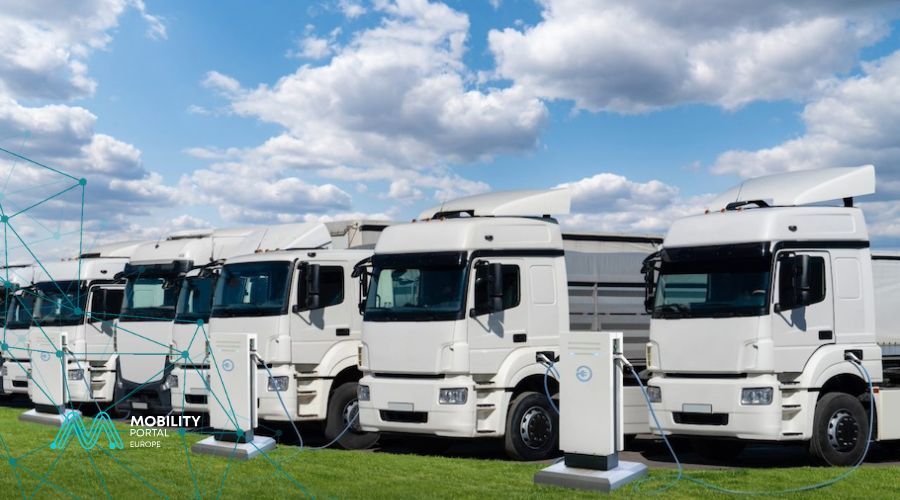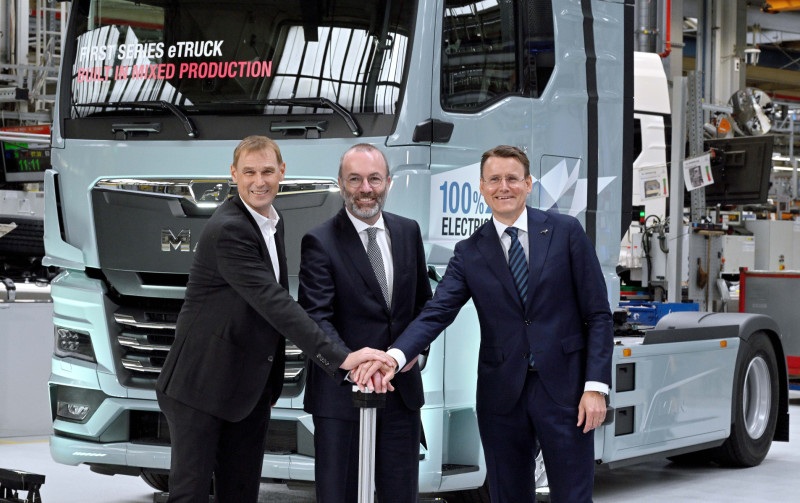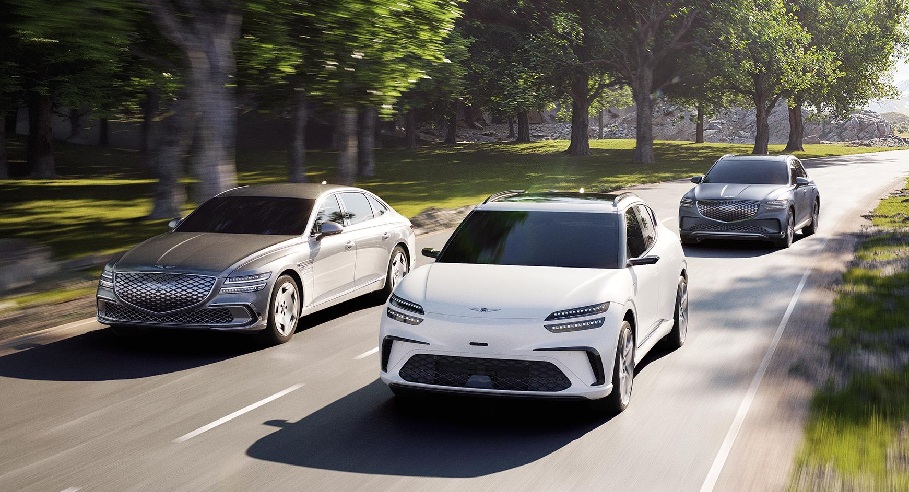On 30 May, Poland launched a support programme for zero-emission heavy transport, aimed at financing the purchase or leasing of N2 and N3 category trucks.
This initiative, driven by the National Fund for Environmental Protection and Water Management (NFOŚiGW), forms part of a broader state programme to reduce polluting gas emissions and promote electromobility in heavy transport.
With a total allocation of PLN 6 billion (approximately 1.4 billion euros), the objective is to transform this key sector of the economy, which accounts for more than 7% of the country’s gross domestic product (GDP).
Of the total, PLN 2 million (approximately 467.400 euros) will be used to finance the purchase or leasing of zero-emission trucks.
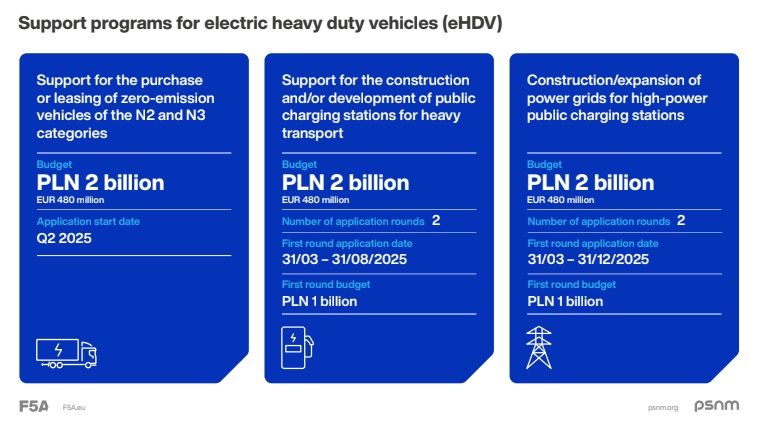
Piotr Stępiński, Head of the Electromobility Department at NFOŚiGW, highlights the scale of the programme during a webinar organised by the Polish New Mobility Association (PSNM).

“This support is essential to create a new economic segment in the country, which will also increase the competitiveness of a sector that is vital to the national economy,” says Stępiński.
According to the expert, the programme as a whole will not only drive the transition towards electric freight vehicles, but also contribute to the development of charging infrastructure, a critical aspect for the success of the plan.
The initiative is intended for Polish companies or those headquartered in the country.
The call for applications will remain open on a rolling basis until 30 June 2029 or until funds are depleted, and applicants may submit multiple applications, provided they do not exceed 15% of the total budget.
The initial amount of PLN 1 billion will be increased in future application rounds.
What are the requirements?
According to Stępiński, companies will be able to apply for up to PLN 400,000 for each N2 category vehicle and up to PLN 750,000 for an N3.
“In the case of a purchase, the grant will cover the difference between the cost of a conventional truck and a zero-emission one; in leasing, it will subsidise the difference between the capitalised instalments of both,” explained Stępiński.
For financial leasing, state support will not exceed the value of the initial payment. The amounts granted will vary depending on the size of the beneficiary: 60% for small businesses, 50% for medium-sized, and 30% for large enterprises.
Applicants will be required to submit two comparable offers: one for a zero-emission vehicle and another for an equivalent combustion model.
The parameters to be compared include the category (N2 or N3), vehicle type (tractor unit, box truck, etc.), equipment level, and body type.
The number of permitted axles and the maximum authorised mass will also be assessed.
The offers must be expressed in zloty, remain valid for at least six months, and include technical specifications and acquisition cost.
An Opportunity For Leasing of Heavy Transport
One of the most notable features of the programme is its focus on leasing.
According to Stępiński, the support in this regard covers only the initial payment, which facilitates access to financing for smaller companies.
In this case, in addition to the aforementioned requirements, a leasing guarantee of at least five years, initial and residual value, down payment amount, and payment schedule must be included.
The financial evaluation of the applicant will be the responsibility of the leasing company.
The financed vehicles must be new, with a maximum mileage of 6,000 kilometres.
Strict minimum annual mileage requirements will also apply for five years.
For N2 vehicles, a minimum of 25,000 km per year is required, while for N3 vehicles, it is 50,000 km.
However, Stępiński clarifies: “We have a flexible formula regarding mileage reporting. It is not necessary to meet an exact amount per year, as it can be averaged annually.”
“The total, over the investment period, must match the value established in the programme,” he adds.
Meeting these requirements is essential to ensure an effective contribution to emission reductions.
Application and Evaluation Process
Initially, companies will submit two offers, one for a zero-emission vehicle and another for a conventional one.
The figures will be evaluated by the National Fund for Environmental Protection, which will also conduct a technical and formal review of the project.
Once the application is approved, companies will sign a contract and submit their guarantees before accessing the funds.
All technical and legal details can be consulted here.
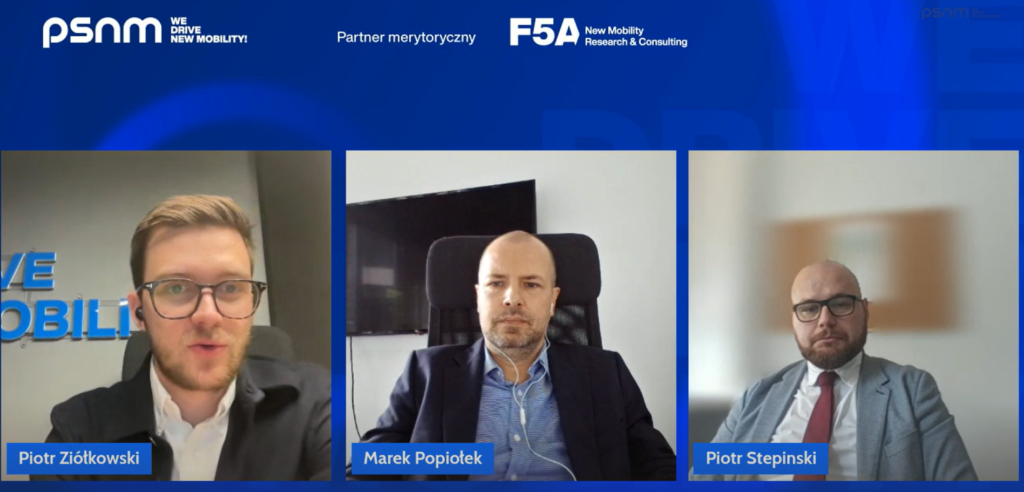
DISCOVER MOBILITY PORTAL DATA
Discover Mobility Portal Data, a new exclusive market intelligence platform offering reliable data and key reports to support smart decision-making across the automotive sector — covering both combustion and electric vehicles, as well as charging infrastructure.
Research, trend analysis, and neatly organised statistics presented with clarity and precision, alongside up-to-date insights — all just one click away. With Mobility Portal Data, good decisions are on the horizon.
READ MORE
-
Poland funds zero-emission heavy transport with nearly €500k: how to access funding?
PLN 2 million (approximately €467,400) will be allocated to finance the purchase or leasing of around 3,800 N2 and N3 vehicles. The initiative is part of a broader PLN 6 billion programme. What are the requirements?
-
Historic: MAN starts series production of e-Trucks
From now on, both electric and diesel trucks will be produced in a fully integrated mixed production process on the same line. Before starting series production, MAN has already manufactured almost 200 electric pre-series units and delivered them to customers.
-
Genesis rolls out EVs in 4 new European countries
From its European headquarters in Frankfurt, Genesis Motor Europe operates in Germany, Switzerland and the UK. Since launching in Europe in 2021, the brand has received multiple company and product award wins across all three markets.





